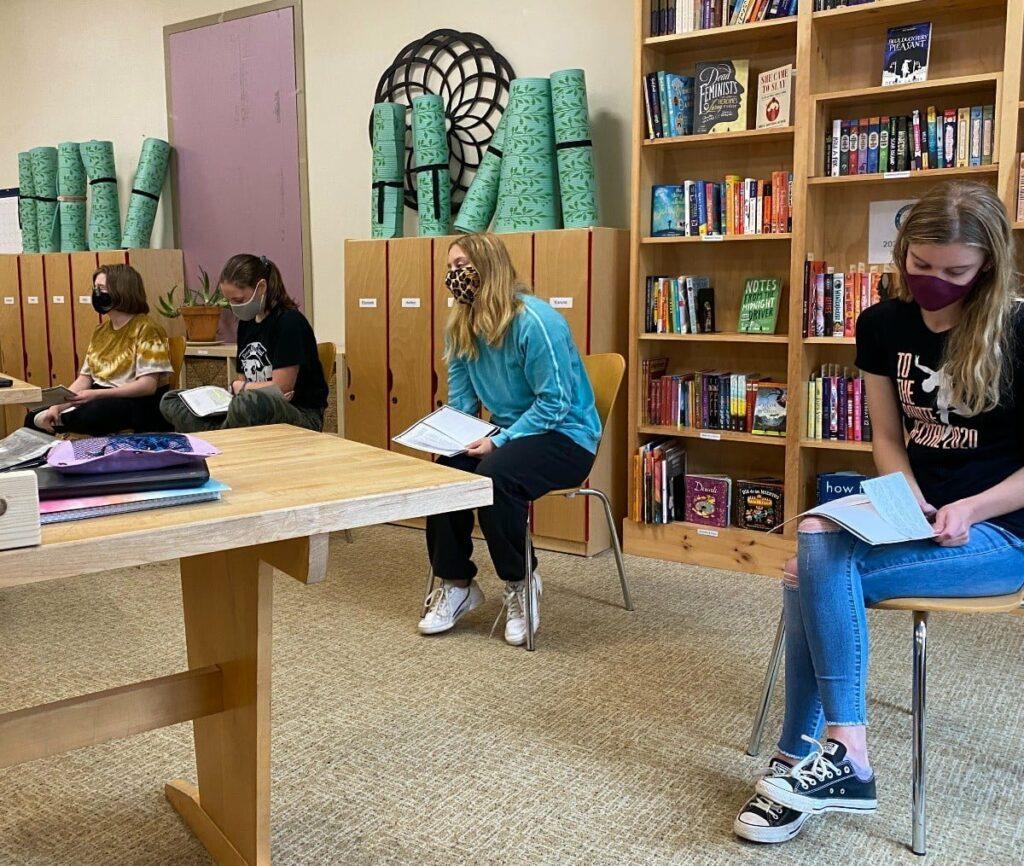
Seminar in Middle School creates opportunities for students to extend their understanding and interpretation of a text by intertwining social interaction, communication, and the growing power of the adolescent intellect. Students prepare for seminar discussions by closely reading and annotating a short story or other rich text. Next they prepare interpretive questions that have more than one correct answer and can be supported by the text. By discussing these interpretive questions in a student-led, open, and unscripted format, students think more deeply and question more critically.
Typically, the teacher is present only as an observer. Participants do not raise hands or speak in a particular order. The discussion is organic and wends its way through questions, comments, new insights, conflicting ideas, text evidence, and aha moments to create deeper understandings and stronger communication skills. In the first seminar discussion of the current school year, Middle School students discussed a short story for forty-five minutes based on only seven of the many prepared questions. Students were lively and respectful as the conversation flowed, remembering the grace and courtesy of seminar including step up/step back, one mic, and awareness of body language in a group discussion.
After the seminar discussion concludes, students complete a self-assessment that asks them to reflect on various aspects of their preparation and participation. This allows them to celebrate what went well and set goals for future work. One student may work on preparing deeper interpretive questions while another may set the goal of speaking more or less often in the next discussion. With each successive seminar, students have the opportunity to refine their skills and increase their confidence around analysis, interpretation, and dynamic discussion of texts. The thinking, communication, and social skills developed in seminar will be used in many facets of life within and beyond adolescence.
